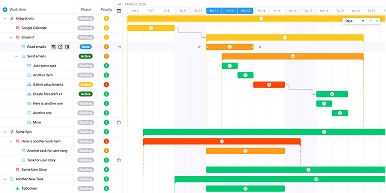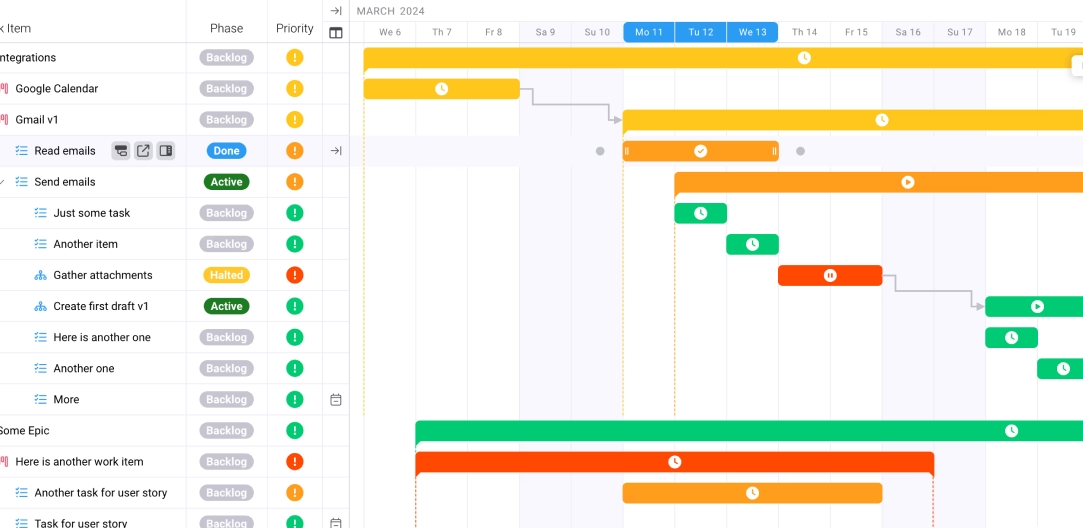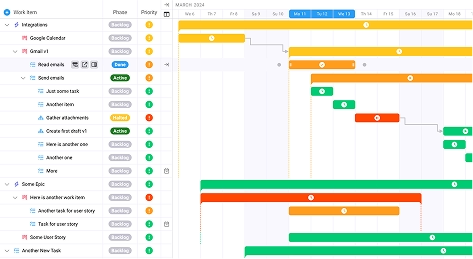
Best Accounting Software for Agencies: 5 Top Options for 2026
Key takeaways:
The global accounting software market is estimated at $21.56 billion in 2025, yet most agencies still struggle with financial management systems that weren't designed for their unique challenges. While traditional businesses might get by with basic bookkeeping, agencies deal with complex project billing, retainer management, and profitability tracking across dozens of clients simultaneously. The right accounting software for agencies can transform your financial operations from a daily headache into a competitive advantage.
Marketing agencies require specialized financial management approaches for project-based billing, making generic accounting solutions inadequate for their needs. In this comprehensive guide, we'll examine the five best accounting software for agencies in 2026: QuickBooks Online, Xero, FreshBooks, Sage 50, and Zoho Books, helping you choose the perfect solution for your agency's financial management requirements.
The Current Challenge - What's Broken in Agency Accounting
Agency financial management presents unique complexities that standard accounting software often fails to address effectively. 51% of accounting firms find it challenging to keep up with regulatory changes, but agencies face an even steeper challenge: managing finances for businesses built around projects, retainers, and billable hours rather than traditional product sales.
The core problems plaguing agency accounting include fragmented project tracking, where expenses and time from multiple team members across various projects become nearly impossible to accurately allocate. Digital agencies need specialized software solutions to manage their unique operational requirements, yet most accounting systems treat every transaction the same way, making project profitability analysis a manual nightmare.
Cash flow management becomes particularly challenging when agencies juggle multiple payment schedules, retainer arrangements, and project-based invoicing. Unlike retail businesses with predictable inventory cycles, agencies must forecast income based on project timelines, client payment habits, and seasonal fluctuations in demand. This unpredictability makes traditional accounting approaches inadequate.
Integration between project management and accounting tools is essential for agency efficiency, yet most agencies still rely on disconnected systems that require manual data entry between platforms. This fragmentation leads to errors, delayed invoicing, and lost billable hours that directly impact profitability.
The regulatory burden adds another layer of complexity. Agencies must track expenses across multiple clients, manage contractor payments, handle sales tax across different jurisdictions, and maintain detailed records for audit purposes. More than 45% of IT spending will shift to cloud-based technologies by 2024, making the choice of accounting platform even more critical as agencies seek solutions that can grow with their evolving needs.
The Strategic Framework - Choosing Agency-Optimized Accounting Software
Selecting the right accounting software for agencies requires a fundamentally different approach than choosing general business accounting tools. The framework centers on four critical evaluation criteria that address agency-specific challenges.
Project-Centric Financial Management forms the foundation of effective agency accounting. Your chosen solution must handle project-based revenue recognition, allowing you to track income and expenses at the project level while maintaining overall financial visibility. This includes managing retainers, milestone billing, and tracking project profitability in real-time.
Time and Resource Tracking Integration ensures that every billable hour and project expense flows seamlessly into your financial system. Automation can save accountants an average of two hours per day, making integrated time tracking essential for agencies where time equals revenue.
Multi-Client Management Capabilities enable efficient handling of dozens or hundreds of client accounts simultaneously. This includes client-specific reporting, customized invoicing, and the ability to track expenses and profitability on a per-client basis. The software must accommodate different billing arrangements, from hourly rates to fixed-fee projects and retainer relationships.
Scalability and Integration Potential ensures your accounting solution can grow with your agency. 68.2% of the accounting software market is dominated by software solutions that offer extensive integration capabilities, making compatibility with project management tools, CRM systems, and other agency software essential for long-term success.
The strategic framework also emphasizes the importance of user experience and accessibility. Agency teams need to input time and expenses quickly without extensive training. Financial managers require comprehensive reporting capabilities without sacrificing ease of use. This balance between functionality and usability often determines whether an accounting system becomes a productivity enhancer or an operational bottleneck.
Implementation Tactics - 5 Top Accounting Software Options for Agencies
1. QuickBooks Online - The Industry Standard with Project Power
QuickBooks Online dominates the small business accounting landscape for good reason, offering robust project tracking capabilities specifically valuable for agencies. QuickBooks Online allows agencies to track all project-related expenses in real time, making it easier to monitor project profitability and ensure accurate client billing.
The Projects feature in QuickBooks Online Plus enables agencies to organize income, expenses, and time entries under specific client projects. This project-centric approach allows for detailed profitability analysis, showing exactly which clients and project types generate the highest margins. The software automatically categorizes transactions by project, eliminating the manual allocation that plagues many agency financial processes.
Recent updates have enhanced QuickBooks Online's appeal for agencies. The integration with AI-powered features helps automate routine tasks like expense categorization and invoice generation. The platform's extensive app ecosystem includes integration with popular agency tools for project management, time tracking, and client communication.
However, QuickBooks Online's pricing can escalate quickly for growing agencies. Additional users cost $25-35 monthly, and advanced features require higher-tier plans. The learning curve can be steep for team members without accounting backgrounds, though comprehensive training resources help mitigate this challenge.
Best for: Established agencies with dedicated financial management staff who need comprehensive reporting and extensive third-party integrations.

2. Xero - Global Reach with Beautiful Design
Xero supports millions of users across more than 180 countries, making it an excellent choice for agencies with international clients or team members. The platform's strength lies in its intuitive interface and powerful automation features that reduce manual data entry.
Xero's project tracking capabilities allow agencies to monitor time, costs, and profitability by project. The software excels at multi-currency management, automatically updating exchange rates and handling international transactions seamlessly. This makes it particularly valuable for agencies serving global clients or managing remote teams across different countries.
The bank reconciliation process in Xero uses machine learning to automatically match transactions, reducing time spent on routine bookkeeping tasks. The platform's real-time dashboard provides immediate insights into cash flow, outstanding invoices, and project profitability, enabling data-driven decision-making.
Integration capabilities extend to over 1,000 third-party applications, including popular agency tools for project management, CRM, and marketing automation. The mobile app functionality allows team members to capture expenses and track time from anywhere, essential for agencies with remote or client-site workers.
Xero's pricing structure offers better value than QuickBooks for multiple users, making it cost-effective for growing agencies. However, the platform lacks some advanced inventory management features that agencies selling physical products might require.
Best for: Growing agencies with international operations, remote teams, or complex multi-currency requirements who value design and automation.
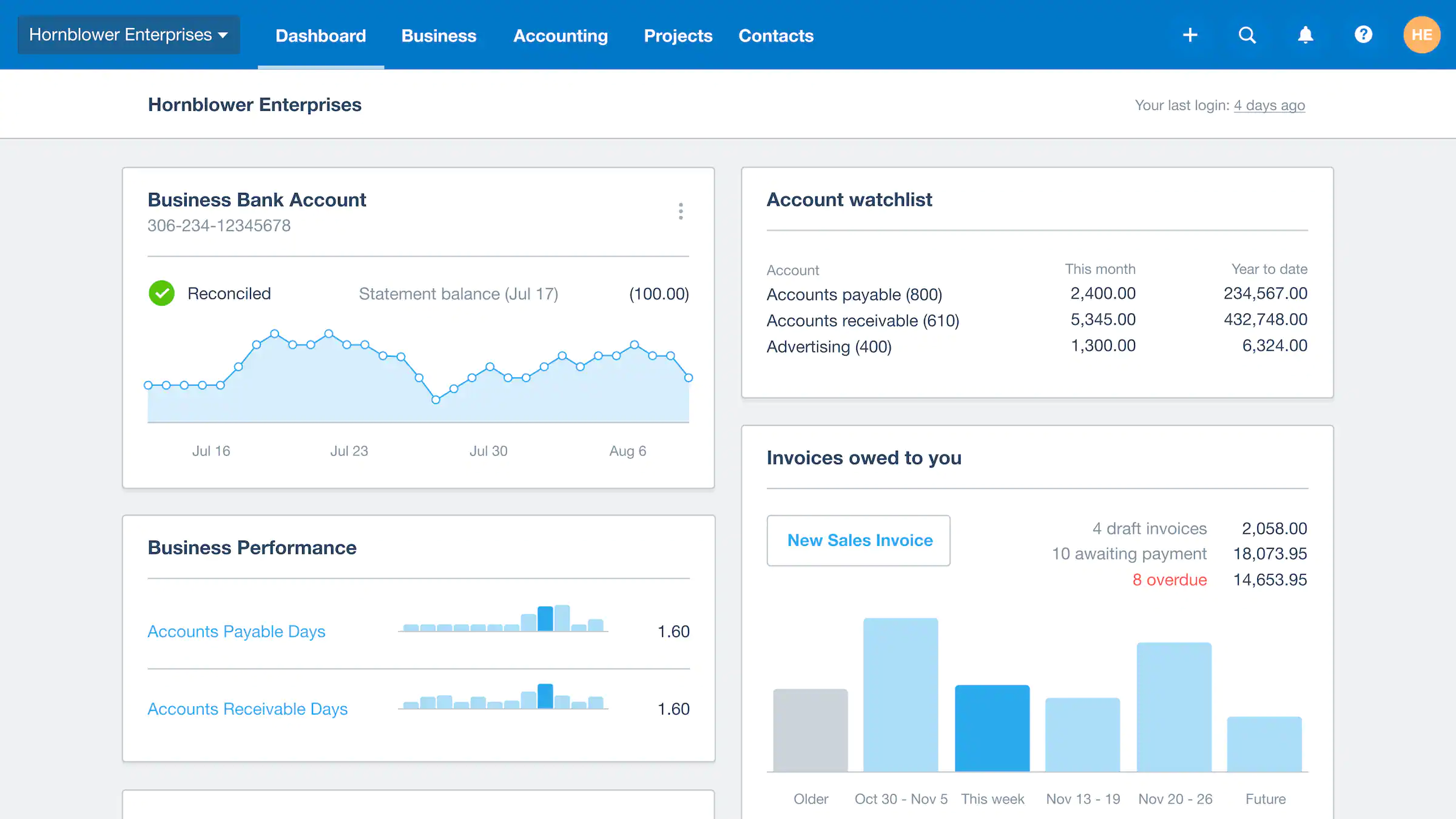
3. FreshBooks - Time Tracking Excellence for Service Businesses
FreshBooks built its reputation on exceptional invoicing and time tracking capabilities, making it naturally suited for service-based agencies. The platform's strength lies in its ability to seamlessly convert tracked time and expenses into professional invoices, streamlining the entire billing process.
The time tracking functionality integrates throughout the platform, allowing team members to log hours directly against specific projects and clients. This time data flows automatically into invoices, ensuring accurate billing and eliminating the manual time entry that causes revenue leakage in many agencies. The mobile app makes it easy for team members to track time regardless of location.
Project management features in FreshBooks enable budget setting, milestone tracking, and team collaboration. The project profitability reports show real-time margin analysis, helping agency managers identify which clients and projects generate the best returns. The software handles retainer billing effectively, managing advance payments and applying them against future invoices automatically.
FreshBooks excels at client communication, providing a client portal where customers can view project progress, approve estimates, and pay invoices online. The automated payment reminders and recurring invoice features improve cash flow by reducing the time between completed work and payment receipt.
However, FreshBooks lacks some advanced accounting features that larger agencies might require. The reporting capabilities, while adequate for most agencies, aren't as comprehensive as QuickBooks or Xero. The per-user pricing can become expensive for larger teams.
Best for: Service-focused agencies that prioritize time tracking and client billing efficiency over complex financial reporting requirements.
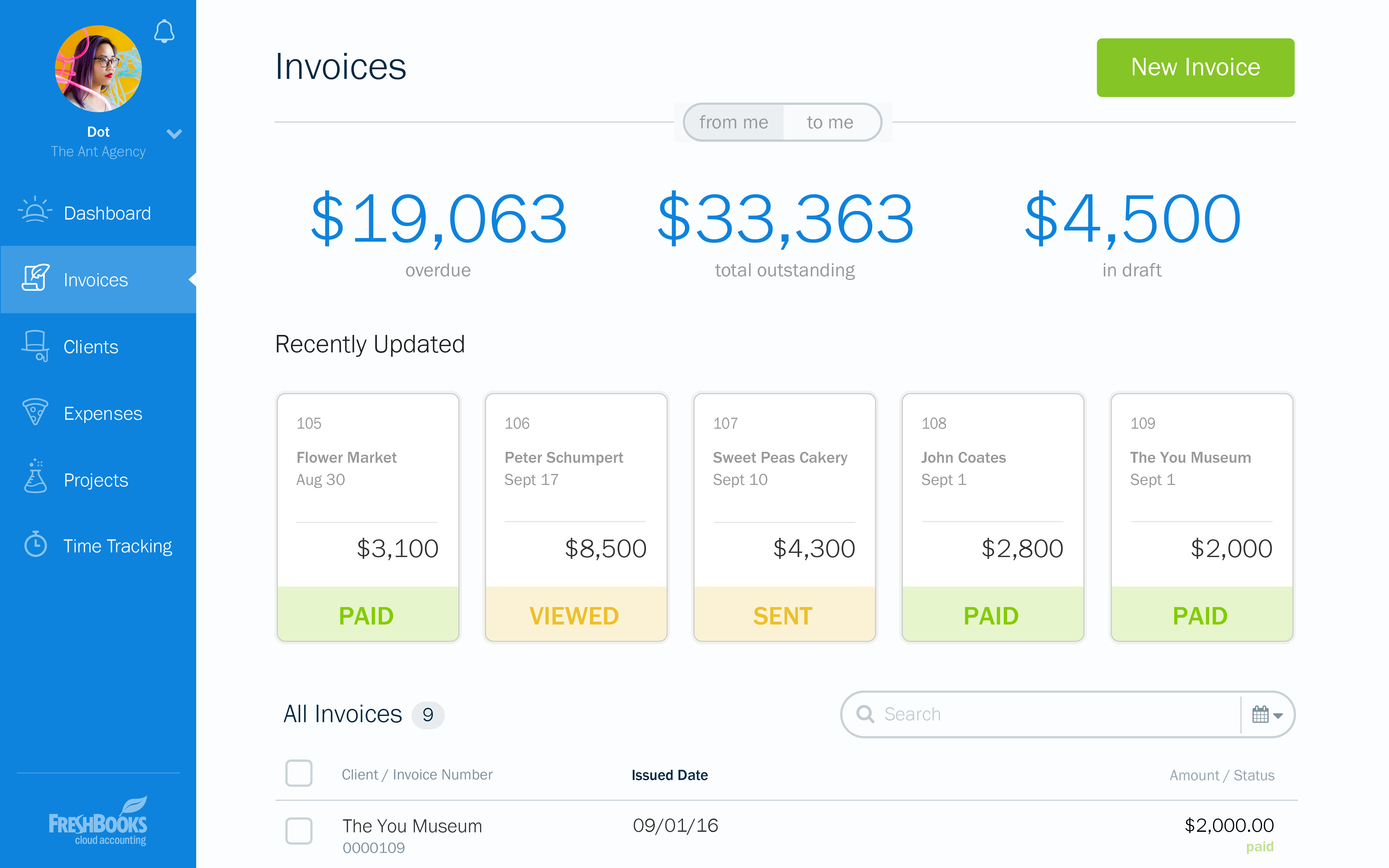
4. Sage 50 - Desktop Power with Cloud Connectivity
Sage 50 combines desktop software reliability with cloud connectivity, offering agencies powerful accounting capabilities without fully committing to cloud-based solutions. The software excels in detailed job costing and project management, making it valuable for agencies that need precise project profitability analysis.
The job costing features allow agencies to track costs through multiple phases and categories, providing detailed insights into project efficiency and profitability. This granular tracking helps identify which types of projects, clients, or services generate the highest margins, enabling strategic decision-making about service offerings and pricing.
Sage 50's inventory management capabilities surpass most cloud-based alternatives, making it suitable for agencies that sell products alongside services. The software handles complex pricing structures, multiple units of measure, and detailed cost tracking that many agencies require for accurate project accounting.
The desktop architecture provides fast performance and offline access, valuable for agencies in areas with unreliable internet connectivity. Data remains under agency control, addressing security concerns that some organizations have with cloud-based solutions.
However, Sage 50 requires local installation and doesn't offer the anywhere-access that remote teams often need. The user interface feels dated compared to cloud alternatives, and collaboration features lag behind modern expectations. The learning curve is steep, requiring dedicated training for effective use.
Best for: Established agencies with stable teams who need powerful job costing capabilities and prefer desktop software control over cloud convenience.

5. Zoho Books - Integrated Ecosystem for Growing Agencies
Zoho Books offers agencies the advantage of a comprehensive business software ecosystem, integrating accounting with CRM, project management, and other business functions. This integration eliminates the data silos that plague many agency operations.
The project tracking capabilities enable agencies to monitor time, expenses, and profitability by project while maintaining seamless data flow with other Zoho applications. The time tracking integrates with project management, allowing team members to log hours directly against specific tasks and automatically generating invoices based on tracked time.
Zoho Books handles multi-currency transactions effectively, making it suitable for agencies serving international clients. The automation features include recurring invoices, payment reminders, and expense categorization, reducing the manual work that typically consumes administrative resources.
The reporting capabilities provide insights into project profitability, cash flow, and financial performance. The customizable dashboard allows different team members to access relevant information without overwhelming them with unnecessary complexity.
Pricing remains competitive, especially for agencies planning to use multiple Zoho applications. The ecosystem approach can reduce overall software costs while improving integration efficiency. However, third-party integration options are more limited than competitors, potentially creating challenges for agencies using non-Zoho tools.
Best for: Growing agencies looking for an integrated business management ecosystem who prioritize cost-effectiveness and seamless data flow between business functions.
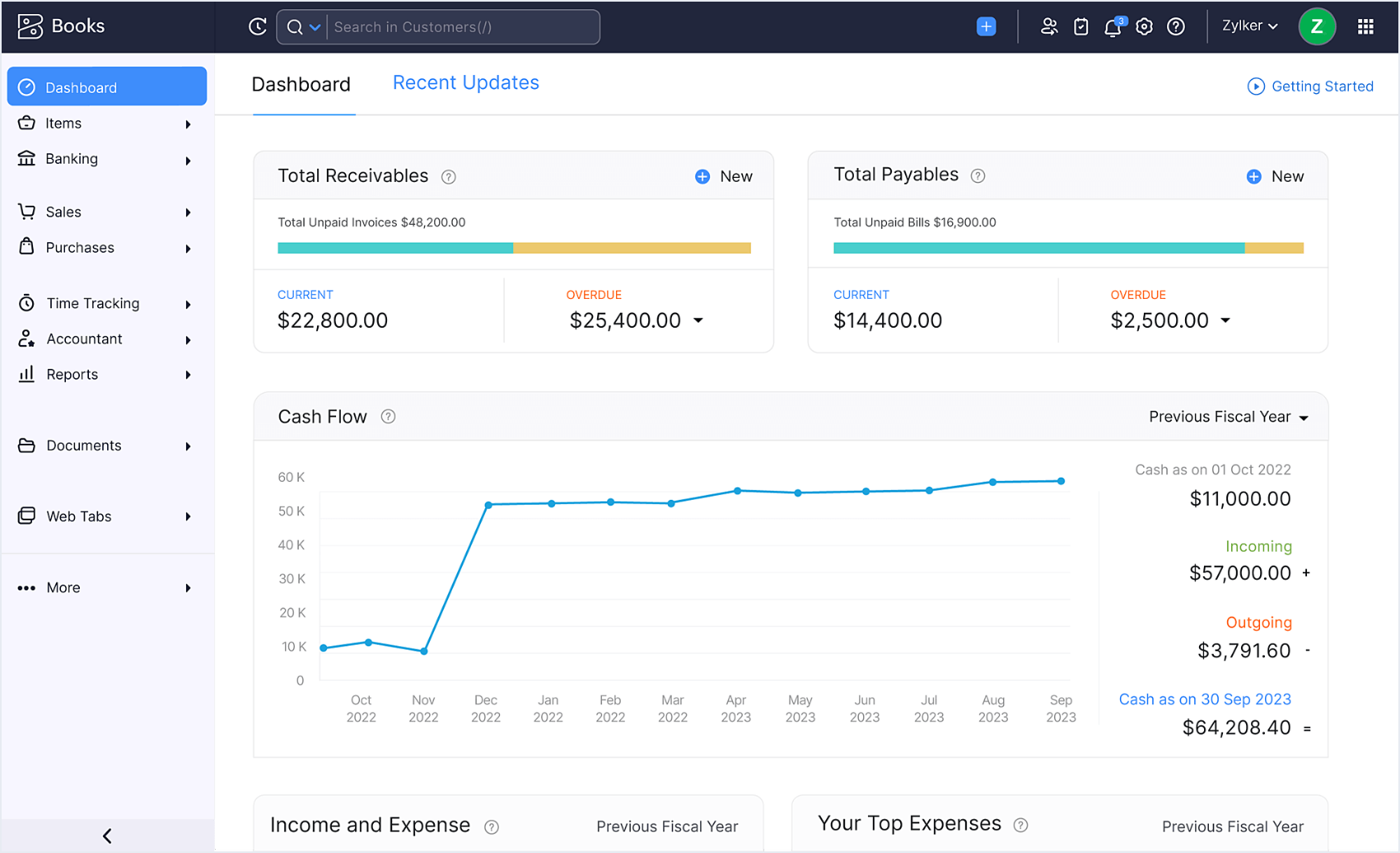
Measuring Success - Key Performance Indicators for Agency Accounting
Successful implementation of accounting software for agencies requires tracking specific metrics that reflect the unique nature of agency business models. These KPIs help agency leaders understand whether their financial management systems are driving operational efficiency and profitability improvements.
Project Profitability Tracking serves as the primary success metric for agency accounting systems. 78% of finance professionals predict that all future accounting methods will be automated, making real-time project margin analysis increasingly important for competitive positioning. Track gross margin by project, client, and service type to identify your most profitable offerings.
Billing Efficiency Metrics measure how effectively your accounting system converts completed work into revenue. Monitor the time between project completion and invoice generation, average collection times, and the percentage of billable hours successfully captured and invoiced. These metrics directly impact cash flow and overall profitability.
Time Tracking Accuracy becomes critical when time equals revenue. Measure the percentage of team hours tracked, compare tracked time to project budgets, and monitor the variance between estimated and actual project time. Higher accuracy in time tracking correlates directly with improved project profitability.
Cash Flow Predictability measures your ability to forecast future financial position based on project timelines and payment schedules. Track the accuracy of cash flow projections, monitor aging of receivables by client, and measure the variance between projected and actual monthly revenue.
System Adoption and Usage Rates indicate whether your chosen solution meets user needs. Monitor login frequencies, feature utilization rates, and time spent on accounting tasks compared to previous systems. Low adoption often signals interface problems or missing functionality that affects overall system success.
Client Billing Satisfaction can be measured through payment speed, dispute rates, and client feedback on invoicing clarity and accuracy. Agencies using effective accounting systems typically see faster payment cycles and fewer billing-related client issues.
These metrics should be reviewed monthly and compared against baseline measurements from your previous accounting system. The goal is demonstrable improvement in efficiency, accuracy, and profitability tracking that justifies the software investment and implementation effort.
Future Considerations - Emerging Trends and Technology Integration
The accounting software landscape continues evolving rapidly, with several trends particularly impacting agency financial management. The US makes up 35% of the global accounting software market, driving innovation in features specifically designed for service-based businesses like agencies.
Artificial Intelligence Integration is transforming routine accounting tasks through automated expense categorization, invoice generation, and financial forecasting. Agencies should evaluate software platforms investing heavily in AI capabilities, as these features will become competitive necessities rather than nice-to-have additions.
Advanced Project Analytics using machine learning algorithms will provide deeper insights into project profitability patterns, client behavior, and resource optimization opportunities. Future accounting systems will predict project outcomes based on historical data, enabling proactive management interventions.
Real-Time Collaboration Features will continue expanding as remote and hybrid work models become permanent fixtures in agency operations. Look for accounting platforms that prioritize seamless collaboration between team members, clients, and external partners like accountants and consultants.
Enhanced Integration Capabilities will make accounting software the central hub for agency operations, connecting with an expanding ecosystem of specialized tools for project management, client communication, and performance analytics.
Compliance Automation will become increasingly important as tax regulations and reporting requirements grow more complex. Future accounting systems will automatically handle multi-state tax compliance, contractor reporting, and audit trail maintenance without manual intervention.
Mobile-First Design will shift from convenience feature to business necessity as agency teams become more distributed and client-focused work requires financial management capabilities regardless of location.
When selecting accounting software for agencies, prioritize platforms demonstrating commitment to these emerging trends through regular feature updates and clear development roadmaps. The accounting software you choose today should remain relevant and competitive throughout your agency's growth trajectory.
Conclusion
Choosing the best accounting software for agencies in 2026 requires careful consideration of your specific operational needs, team size, and growth trajectory. Each of the five options we've explored - QuickBooks Online, Xero, FreshBooks, Sage 50, and Zoho Books - offers distinct advantages for different types of agencies.
QuickBooks Online provides the most comprehensive feature set and extensive integration options, making it ideal for established agencies with complex financial management requirements. Xero delivers exceptional automation and international capabilities for globally-focused agencies. FreshBooks excels in time tracking and billing efficiency for service-focused organizations. Sage 50 offers powerful desktop capabilities for agencies requiring detailed job costing. Zoho Books provides integrated ecosystem benefits for growing agencies seeking cost-effective solutions.
The key to success lies in aligning your chosen accounting software for agencies with your specific business model, team capabilities, and growth plans. Consider conducting pilot tests with your top candidates before making final decisions, and ensure adequate training resources are available for successful implementation.
Remember that the right accounting software for agencies becomes a strategic advantage, enabling better project profitability analysis, improved cash flow management, and more efficient billing processes that directly impact your agency's bottom line and competitive position in 2026 and beyond.
Frequently Asked Questions
How much should agencies budget for accounting software?
Most agencies should expect to invest $50-200 per month for comprehensive accounting software, depending on user count and feature requirements. Cloud-based solutions typically offer better value and scalability than desktop alternatives.
Can accounting software integrate with existing project management tools?
Yes, most modern accounting platforms offer extensive integration capabilities with popular project management software, CRM systems, and time tracking tools through native connections or third-party integration platforms.
How long does it take to implement new accounting software?
Implementation typically takes 2-4 weeks for small agencies and 1-2 months for larger organizations, including data migration, team training, and workflow optimization.
What security features should agencies prioritize?
Look for solutions offering bank-level encryption, multi-factor authentication, regular security audits, and compliance with relevant data protection regulations like GDPR or SOC 2.
Should agencies choose cloud-based or desktop accounting software?
Cloud-based solutions offer better collaboration, automatic updates, and remote access, making them preferable for most modern agencies. Desktop solutions may suit agencies with specific security requirements or limited internet connectivity.
How do you measure ROI on accounting software investment?
Track improvements in billing efficiency, reduction in administrative time, accuracy of project profitability tracking, and cash flow management to quantify the return on your accounting software investment.
What training is needed for agency teams?
Most team members need 2-4 hours of training for basic functions like time tracking and expense submission. Financial managers typically require 8-16 hours for comprehensive feature utilization.
Can accounting software handle multiple currencies for international clients?
Yes, most modern platforms offer multi-currency support with automatic exchange rate updates, though specific capabilities vary between providers.


